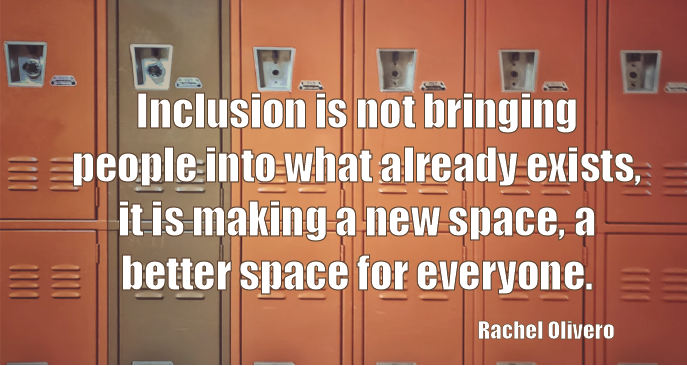From our work at CCTS and our interactions with districts, ESDs, and OSPI, we find ourselves at an exciting tipping point with opportunities to strengthen inclusionary practices. Multiple factors, including the desires and hopes of students and their families to be more fully included in general education classes, the work of state and local leaders, and policies addressing these goals, are merging in such a way that’s pushing us all forward.
Graduation policies are one example. In previous years, we waived and replaced courses for students with disabilities, often with the best of intentions. However, it might have resulted in students not reaching their full potential, as we may not have held them to the high standards we know they can reach.
Now is an opportunity for Special Education to partner with Career Technical Education (CTE) to meet graduation requirements while providing students with additional opportunities to develop life and employability skills. This newsletter includes an overview of graduation requirements for students with disabilities in Washington state, along with guidance and resources for utilizing CTE courses to fulfill those requirements.



CTE as Graduation Pathway for Students with Disabilities
Graduation Requirements
To earn a high school diploma, every student, including those receiving Special Education services, must complete a High School and Beyond Plan (HSBP), a Graduation Pathway, and earn the required high school credits. This includes all students with an active IEP.
IEP teams are not able to create new graduation pathways nor to waive graduation requirements for students receiving special education services. (Page 24 of OSPI's Graduation Pathways Toolkit includes details about comparable content course substitutions.)
The Certificate of Individual Achievement (CIA) was discontinued for the Class of 2022 and beyond after a two-year transition period. House Bill 1599 expanded the pathways that all students can use to graduate and provided a two-year transition period to move away from the CIA. Offering multiple graduation pathways for all students is one of the ways that OSPI is delivering on the promise that all students are prepared for postsecondary pathways, careers, and civic engagement.
CTE Sequence Graduation Pathway
One such pathway is the CTE Sequence Graduation Pathway, which provides opportunities for students with disabilities to meet graduation requirements while better preparing for life after high school. Students may meet this graduation pathway option by completing a sequence of CTE courses that align with their HSBP.
Satisfying this graduation pathway option can meet requirements in both English and math. A course that is used as part of a CTE sequence may also be used to meet subject area graduation requirements in CTE or in other subject areas through CTE course equivalencies (Graduation Pathway Options: Combination, Washington State Board of Education).
These new regulations offer opportunities to plan forward and to increase inclusion for students with disabilities.
- Plan forward by carefully developing a course of study for the transition plan and the graduation pathway, ensuring that these align and are designed early and thoughtfully with student and family/caregiver involvement.
- Increase opportunities for inclusion by working closely with CTE teachers to build collaboration and partnerships between CTE and Special Education. The personalized graduation pathway requirements are related courses, including CTE courses, leading to a specific post-high school career or education outcome.
To learn more about the graduation pathways available to all students please review the OSPI's Graduation Pathways webpage.
Additional Resources
- Graduation Pathway Options, Washington State Board of Education
- Graduation Pathways Toolkit, OSPI
- Graduation Requirements for the Class of 2023, Washington State Board of Education
- Waivers and CIA, OSPI

Self-Paced Training: Partnerships for Inclusion
CCTS’s new Partnerships for Inclusion training course features interviews with Washington state educators who share their stories and strategies for increasing inclusionary practices in their schools and districts, by emphasizing collaborations between Special Education (SE) and Career Technical Education (CTE). The five-module course is available free of charge.
- Module 1: Introduction to Inclusionary Practices
- Module 2: Developing Partnerships between SE and CTE
- Module 3: IEP Transition Plans and CTE Course Enrollment
- Module 4: Co-Teaching for SE and CTE
- Module 5: Implementing Change
